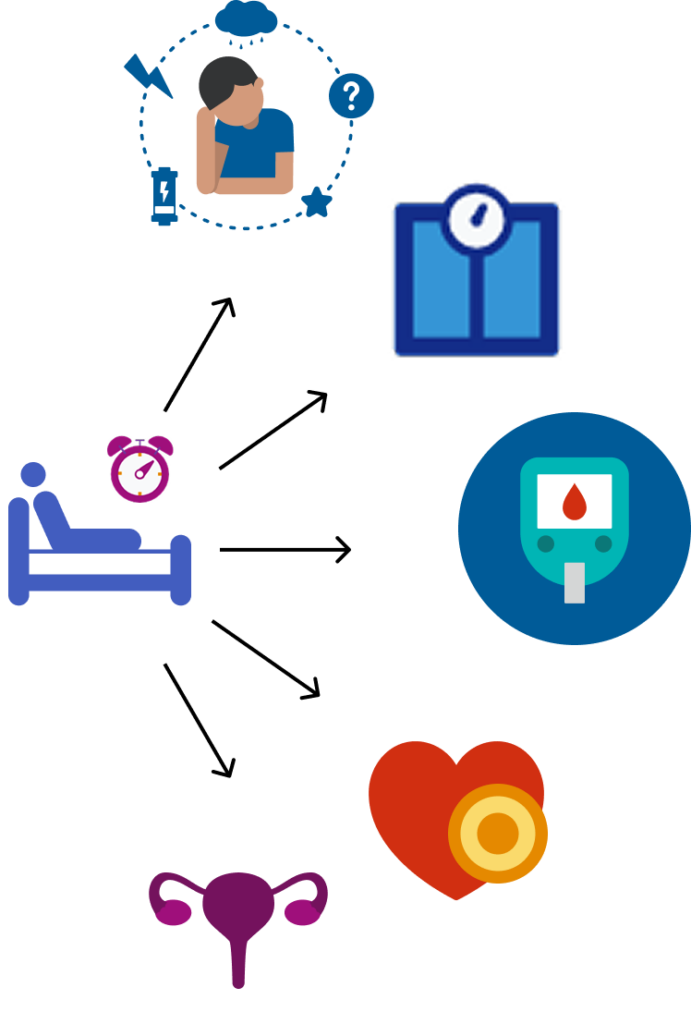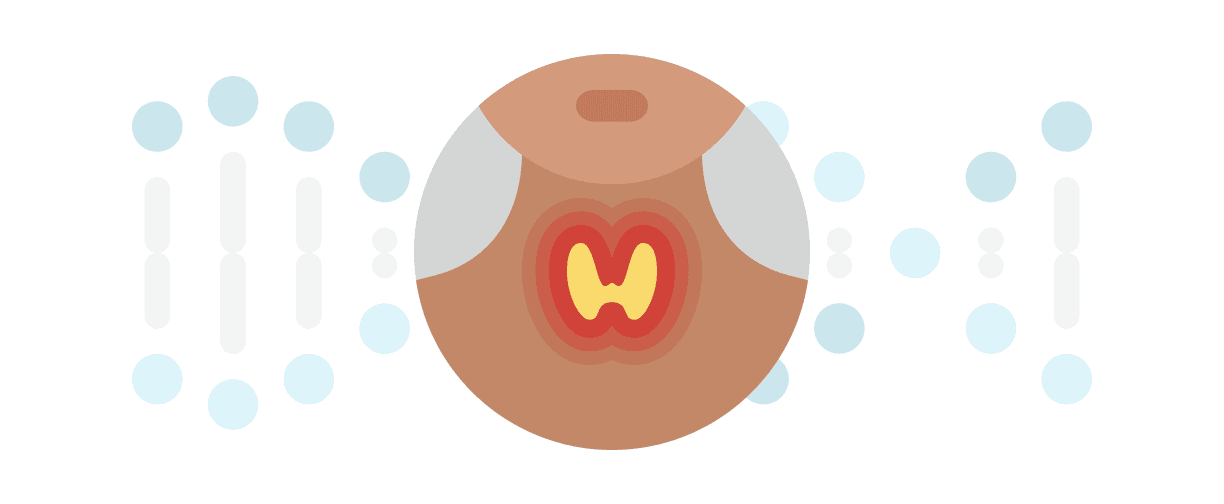by Destiny Gordon
We often blame everything on not getting enough sleep—feeling foggy, moody, exhausted, or just off. And while sleep quantity matters, what many of us don’t realize is that it’s not only about how much sleep we get—but when we get it. At the core of it all is your body’s internal clock, known as your circadian rhythm. This quiet, biological timekeeper is constantly at work, regulating everything from hormone release and metabolism to mood and energy. And when it falls out of sync—whether due to shift work, late nights, excessive screen time, or simply inconsistent routines—your health can start to feel out of balance in ways that go far beyond basic tiredness.
What is circadian rhythm?

Circadian rhythm is the natural cycle your body goes through in a 24-hour period. Genetics plays a key role in determining circadian rhythm. In fact, the researchers who first uncovered the genetic basis of circadian rhythm won the Nobel Prize in Physiology or Medicine in 2017. Your circadian rhythm influences when your brain is sharp, when your body digests food efficiently, and when it needs deep rest. And for women, the interaction between daily circadian rhythms and monthly hormone fluctuations creates a unique layer of complexity. At different points in the menstrual cycle, shifts in estrogen and progesterone can make your body more sensitive to sleep disruption, stress, and energy dips. So if your daily rhythm is already out of sync, those hormonal shifts can hit harder—amplifying symptoms like fatigue, mood swings, poor focus, or disrupted sleep. It’s a compounding effect that makes it even more important to stay in rhythm.
What happens when you’re misaligned to your circadian rhythm?

Research has shown that disruptions to this internal rhythm—like being awake when your body naturally wants to be asleep, sleeping at inconsistent times due to shift work, or missing natural light cues—can throw off the timing of critical biological processes. This circadian misalignment can increase the risk of real, long-term health issues for both men and women. These shifts are linked to mood disorders like anxiety and depression, weight gain, insulin resistance, cardiovascular issues, irregular menstrual cycle, and even fertility challenges. And because these symptoms often start subtly, it’s easy to miss the connection until the effects become harder to ignore.
What can we do to keep our lives aligned to our circadian rhythm?
The tricky part? Circadian disruption often hides in plain sight. It doesn’t always feel like a big, dramatic problem. It can look like staying up a little too late, skipping meals, waking up at inconsistent times, or scrolling in bed just a bit too long. These small habits may not seem like much, but if they happen repeatedly over time, they chip away at your body’s natural rhythm.
The good news? Once you start to tune in, you can make small, manageable changes to help bring your body back into sync. Things like going to bed and waking up at the same time every day (yes, even on weekends), getting exposure to natural light in the morning, limiting caffeine later in the day, and avoiding screens at least an hour before bed can all support a healthier rhythm. It’s not about being perfect—it’s about creating enough consistency that your body knows when to rise, when to rest, and everything in between.
Because when your body runs in rhythm, everything works better. Your mind feels clearer. Your energy lasts longer. Your health feels like it’s working with you, not against you. So maybe it’s not just about getting more sleep. Maybe it’s time to get back in sync.
About Destiny: Destiny Gordon is a rising second-year medical student at Morehouse School of Medicine, originally from Jacksonville, Florida. She is the founder of InnerLight ATL, a youth mental health initiative focused on building safe, supportive spaces for emotional wellness. With over three years of experience in cancer research and a passion for community-centered care, Destiny is dedicated to blending science, advocacy, and storytelling to inform and inspire.



